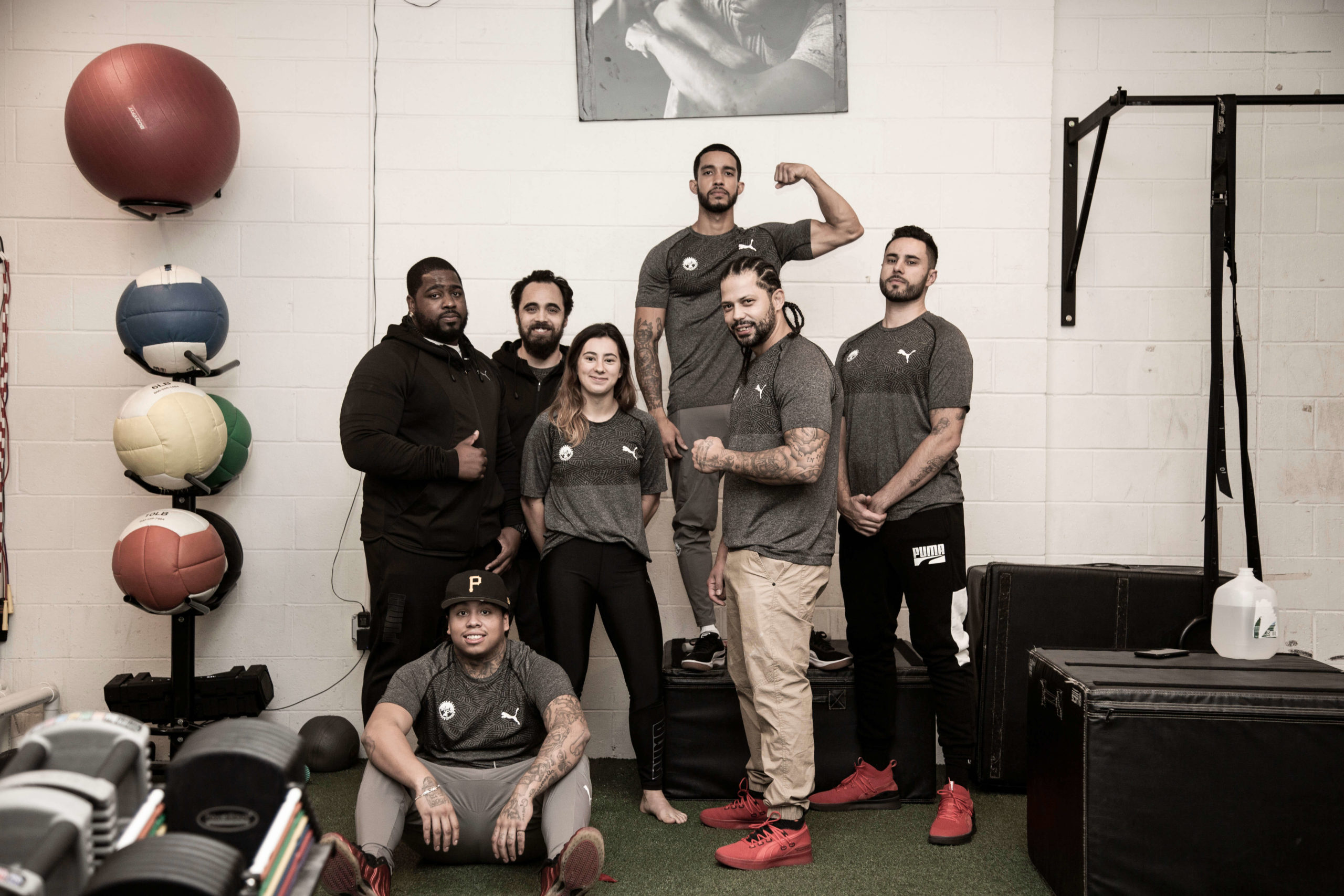We all know the stigmas placed around those incarcerated: “Dangerous,” “bad people” and “untrustworthy.” We’ve been taught to steer clear from these individuals, as there’s “no hope” for them to turn their lives around. A nonprofit group called InnerCity Weightlifting is here to break those stigmas, working to help incarcerated individuals get back on their feet, providing career training and educational materials, and most of all, a community they can lean on.
Getting rid of a stigma
According to CEO and founder of ICW, Jon Feinman’s executive summary, in 2005, during a year of Americorps, he was told to stay away from a group of people involved in the “streets.” He was told they were “too dangerous,” “not to waste [his] time,” and “they won’t change.” What he found wasn’t overwhelming violence and danger – what he saw was love, support, and belonging.
He saw society’s weaponized use of fear used to devalue people as “criminals,” while barely, if at all, acknowledging their circumstances. The streets of America’s making – through our history of oppression and problematic policy – created barriers around safety for a very small group of people so stigmatized that survival involved gun violence. Feinman saw a void in resources and programs that could take the safety needs of this specific group of individuals into consideration and saw an opportunity to dispel fear, anger, and hostility with authentic connection, understanding, and belonging.
ICW has evolved from a weight training program when launched in 2010, to a workforce development track in 2011, then to a social justice organization leveraging a social enterprise in 2012 – when their first gym opened – helping to create economic mobility through careers in fitness and beyond.
They take pride in the connection between the number of students in their program (235), the number of trainers (42) and the number of clients trained by ICW (over 1,700 cumulative as of 2020).
As ICW’s personal training client base grew, they realized the impact was greater than just financial gain. People were connecting in ways that transcended social hierarchies. Power dynamics were flipped, and people were forming relationships and sharing perspectives. They saw the importance of bridging social capital, and how it could ripple from an individual impact to family, to community and, ultimately, to society.
ICW’s Mission
ICW is a registered nonprofit organization that amplifies the voices and agency of those most impacted by mass incarceration, systemic racism, and street violence by connecting people who have been incarcerated with new networks and opportunities, including meaningful career tracks in and beyond personal training.
ICW’s biggest source of revenue is through personal training, corporate training, grants and donations. As a nonprofit group, this allows ICW to continue to operate and support its mission and students.
Services ICW Offers
ICW offers semi-private personal training as well as corporate group fitness and educational engagement. Their unique personal training model allows them to keep prices low while also developing a sense of community for the trainers and clients. ICW’s educational engagement consists of expert panels and small group discussions to amplify the voices and experiences of those participating in the program.
Career Advancement
ICW helps students advance towards a career in personal training, either with ICW or at other gyms. One former ICW Trainer even recently opened his own Boston Training Studio, Canadian Park. Some other industries ICW participants have found careers in include electrical work, construction, carpentry and car mechanics.
The Effects of Mass Incarceration
The ICW team has seen firsthand the effects of mass incarceration, particularly for Bostonians.
“It’s, unfortunately, a cycle, and I’m part of that cycle,” said Etania Cumba, an ICW trainer. “I’ve been locked up twice and it makes you colder to the world and have less faith in the system. The treatment in jail makes us worse, it’s not a rehabilitation system. I didn’t get fresh hair for 9 months and was in the hole for 2 months. You’re supposed to get an hour of fresh air if they (the COs) feel like it. I came out okay, as I was young, I could recover. But it can definitely mess up people’s minds and make them lose hope.”
Fighting Systemic Racism
ICW is a community of support and growth. They have a four-step Impact Model: Earn Trust, Build Hope, Bridging Social Capital, and Economic Mobility. CEO and founder, Jon and SVP of Community, Reggie, created an environment at ICW that has allowed students, who have grown up unable to trust the people around them, to develop trusting relationships and build hope for a future that is far different than they may have thought possible. Through this four-step process, students are able to make a sustainable wage, whether it be through ICW or another career path, allowing them to develop economic mobility, and no longer rely on destructive methods for income.
Equally important in their fight is the impact the trainers have on their clients. Many have never met anyone who has been incarcerated or shot, let alone become friends with them. This relationship changes the perspectives of the clients, which then leads to changes in behavior that challenges the status quo of structural oppression. When people have a personal stake in someone actively being harmed by these systems, the ICW team finds that they are more motivated to join the fight.
Understanding Those Affected
“It’s important to take into consideration that we haven’t lived ‘normal’ lives, so when we reintegrate into society, it takes time to readjust because we have lived two different lives,” Cumba said. “Living in prison makes you become someone that wouldn’t be accepted in society. You have to be ruthless and unforgiving. You have to be tough and ready – if not, you get run over. People think it’s an easy transition when you get out but it’s not. I went in at 18 and was around people as young as 17 and as old as 70. You have to adapt or you’re going to be taken advantage of. I had to be someone that I’m not.”
Spreading the Impact
ICW has made a difference in not only the lives of over a thousand clients, but also to its team members and the Boston community at large.
“The encouragement from the people has made the biggest impact on me,” Cumba said. “You don’t get pats on the back in the streets or how I grew up, as people have always wanted to take something from me. On the streets you only get credit for bad things. When you come to work at a place that encourages you, it has a lasting effect.”
You can help support ICW and their mission through making a donation, learning more on their website, or following them on Instagram.







